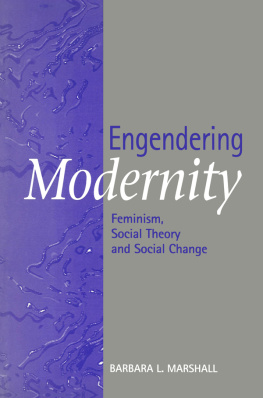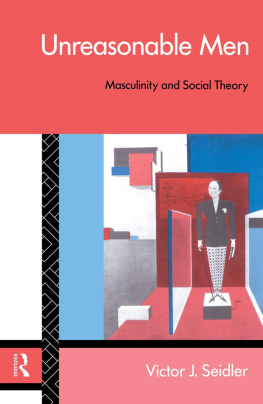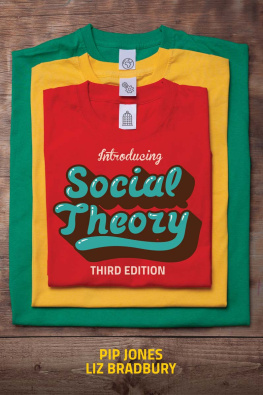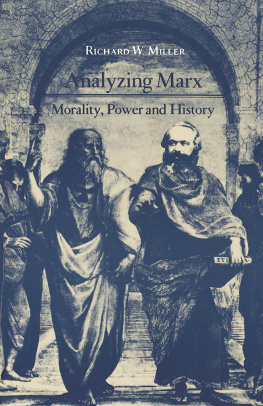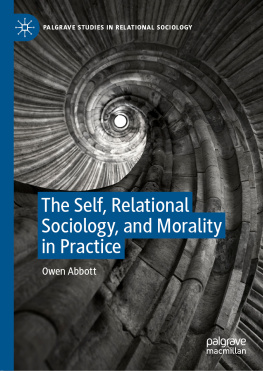Recovering the self
This important book seeks to place questions of morality and justice at the heart of social theory. By exploring the works of Marx, Durkheim and Weber it shows the hidden complexities of a modernity too often identified with a unified vision of the rational self later to fragment within post-modernity. Reinstating the body and emotional life, Seidler sets new terms for respect and equality showing ways the self is undermined in its sense of self-worth and adequacy through the workings of relationships of power and subordination.
Drawing upon feminism and ecology, Seidler places the issues of morality right into the centre of the self problem. Through reinstating connections between the self and the historical adventures of socialism, feminism, masculinity, ethnicity and autobiographically Jewish identity, he shows the intimate affinity between these different categories of experience.
Responding to a crisis in traditional forms of authority and suspicious of a modernity that sets reason against emotion, culture against nature and mind against body, Seidler shows that identities are not freely chosen but involve a coming to terms with histories of gender, sexual orientation, class, race and ethnicity.
Critical of post-modern theories in which anything goes and in which fragmentation of the self is too easily celebrated, this book is concerned with the reassertion of value and recovering a viable tradition in which we can again explore issues of freedom, morality and social justice.
Victor J. Seidler is Reader in Social Theory, Goldsmiths' College, University of London.
For Tony, Teddy and Michael
and in memory of Johnny
Recovering the self
Morality and social theory
Victor J. Seidler
First published 1994
by Routledge
2 Park Square, Milton Park, Abingdon, Oxon, OX14 4RN
Simultaneously published in the USA and Canada
by Routledge
270 Madison Ave, New York NY 10016
Transferred to Digital Printing 2005
1994 Victor Jeleniewski Seidler
Phototypeset in Palatino by
Mews Photosetting, Beckenham, Kent
All rights reserved. No part of this book may be reprinted or reproduced or
utilized in any form or by any electronic, mechanical, or other means, now
known or hereafter invented, including photocopying and recording, or in
any information storage or retrieval system, without permission in writing
from the publishers.
British Library Cataloguing in Publication Data
A catalogue record for this book is available from the British Library
Library of Congress Cataloging in Publication Data
Seidler, Victor J., 1945
Recovering the self: morality and social theory/Victor
Jeleniewski Seidler.
p. cm.
Includes bibliographical references and index.
1. Social sciences-Philosophy. 2. Ethics. I. Title.
H61.S454 1994
300'.1-dc20
93-49036
CIP
ISBN: 0-415-11150-1 (hbk)
ISBN: 0-415-11151-X (pbk)
It's futile to become perfect in preparation for heaven. You are doomed to just striving, striving, striving to be something other than what you are. Just be who you are and try and improve here and there the things that are hurting you and other people
Alice Walker The Voice, 10 November 1992
You may be certain that the world is heading for destruction, but it's a good thing, a moral thing, to behave as though there's still hope. Hope is as contagious as despair. Your hope or show of hope, is a gift you can give to your neighbour, and may even prevent or delay the destruction of his world.
Primo Levi in a 1985 interview
Preface and acknowledgements
The hopes that filled people's lives as they witnessed the diverse challenges to authoritarian rule in Eastern Europe and the former Soviet Union renewed a trust in freedom and democracy. It felt, for a moment at least, as if the old order had been shaken as people in different parts of Europe were taking control of their lives. It was a precious moment of revolutionary change as we saw established structure of power giving way to popular movements for change. People dared to talk about the truth and dignity and morality as they rejected the regime of lies they had been forced to live with.
For a time at least, there was a refusal of traditional forms of the political rhetoric which have so often betrayed peoples hopes and aspirations. But it proved difficult to sustain the moment for people had to overcome long years of distrust. For a long time people have been conscious of the material advances in the West and they yearned for the goods that the capitalist market promised. It was as if people could only put their faith in goods that they could touch and hold, for everything else had betrayed them.
The vision of a new more peaceful and democratic world order was soon dashed by the technological brutalities of the Gulf War and the brutal language of ethnic cleansing that we heard with the disintegration of the former Yugoslavia. It seemed as if the old enmities had not gone away, but simply gone underground waiting for their time. When the dreams of the capitalist market turned sour, as people left without the material goods that the West had for so long promised as the reward for overturning old enemies, somebody had to be blamed.
Many people felt betrayed and bitter because they had been duped by the promises of a new life. Only later were they told of the human costs of mass unemployment as old industries faded. Distant echoes of racism and anti-Semitism were increasingly heard as people sought a target for their frustration and rage. It became pressing to think about the sources of racism, xenophobia and anti-Semitism again. It felt as if little had been learnt.
The dissident voices that inspired the movements in Eastern Europe recognised themselves for a while in Vaclav Havel's aspiration of living in truth, as bearing witness against the brutalities of the regime. Because of the subtle ways people were drawn into complicity with the regimes, speaking the truth assumed a new importance. As Havel wrote in his essay The Power of the Powerless: If the main pillar of the system is living a lie, then it is not surprising that the fundamental threat to it is living the truth. This is why truth must be suppressed more severely than anything else (Havel 1987: 57). So it becomes crucial to reflect upon how truth as a factor of power works. This draws Havel into a way of thinking that is strikingly at odds with the discourses of post-modernity that have become influential in the West. It reminds us of how uncomfortable we have become until quite recently with a moral language which, within a dominant structuralist and post-structuralist tradition, has too easily been denigrated as essentialist. Have we not often had to learn about how the subject has been decentred and was not the faith in the rational self a crucial weakness of modernity? But possibly, as Foucault seemed to realise towards the end of his life, we have to be prepared to think again and question some deeply embedded rationalist assumptions if we want to begin to heal the split between morality and social theory.
Havel talks in terms of a moral language that can still draw us, even if we have lost touch with the ways it can be validated. Possibly we have grown suspicious of morality in the West because it is hard to separate it from the moralism of the 1970s that disfigured so many of the crucial insights of sexual politics. Somehow it seemed as if feminism had fostered a unified conception of women as subjects, which legislated how women were supposed to be if they were liberated.



